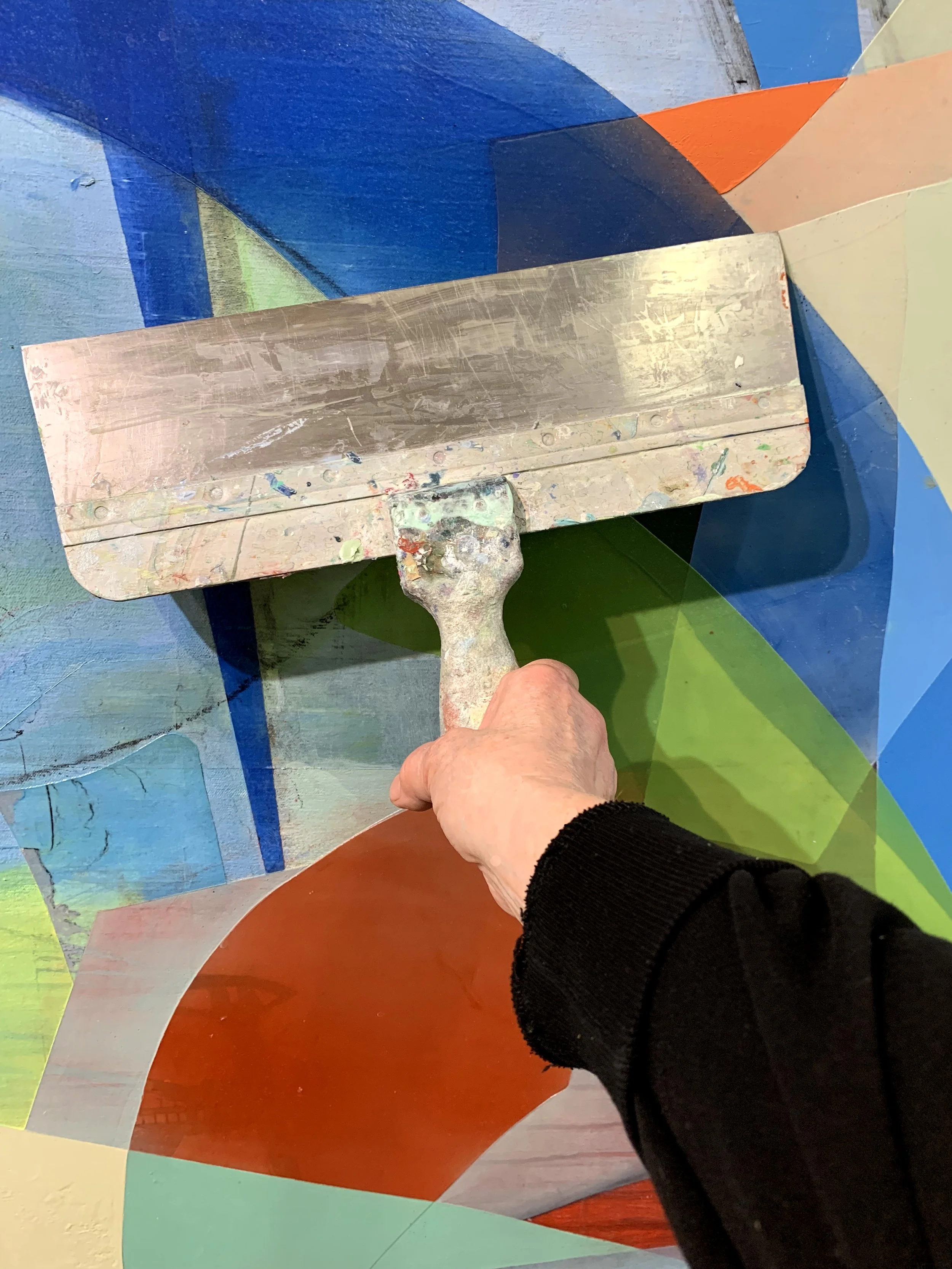Elizabeth Barnes
Painting
1000 Parker Street, Suite #465
Website: http://ElizabethBarnes.ca
Instagram: @endless_murmuring
Email: eabarnes100@gmail.com
Phone: 604-961-8741
I am a painter and dual Canadian/American citizen. I received a BFA in Visual Arts from Tyler School of Art in Philadelphia (1990), and an MFA in Studio Practices from the University of North Carolina (1993).
My work is informed through a love of post-painterly abstraction from the 1960s, and filtered through the lens of our contemporary world. The minimalism of the 60s was often intended to reflect a sense of spirituality, transcendence, or “Onement,” (to quote Barnett Newman.) With the emergence of postmodernism these ideas became critically suspect with their allusion to grand narratives such as organized religion or totalitarianism.
Many artists today are rethinking their relationship to spirituality. With the rise of the climate crisis and conflicts fueled by out of control consumerism, the need for spiritual connection has become critical. This time it is an earth-based spiritually, one that exists in the present and in the interconnections of place, community, and our non-human environment. It is this connection with spirituality that inspires my work.
My painting is about perception, the play of light, or the significance of structure in navigating my place in time. I’ve produced non-objective paintings (what most people call abstract) for many years. My concerns with philosophical treatises of “The Real” have taken me to the place where energies, space, colour, and light come together to create a snapshot of what it means to be human from my particular experience and perception. I often work through a generative process in which I create imaginary systems that allude to our present entanglement with virtuality and altered perceptions. I create shallow spaces in which layers of paint can suggest planes of multiple realities or layers of data. The significance of chance in the unexpected is a crucial aspect of the work. On first glance the paintings may appear to be about control, but it is this control combined with the act of not-knowing that are important. Working with acrylic paint, a paint in which acrylic polymer binds with pigments, means working with a material that is white and opaque when wet, but transparent when dry. For me, the challenge of not knowing the outcome of these applied layers of colour parallel my human desire for control and its dance with the reality of not-knowing. I like to think of the paintings as actors in a speculative drama, a drama that can reveal ghosts of the past, paradoxes of the present, and visions for a possible future.




